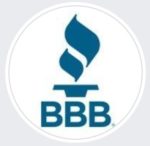
Special to Iredell Free News
Have you received a text with a survey about your COVID-19 vaccine?
Be careful: It could be one of those scams that just keeps reappearing — each time with a new twist. This time, the phony survey claims to be from pharmaceutical company Pfizer, with questions about their COVID-19 vaccine.
Better Business Bureau is warning consumers to be careful.
How the Scam Works
You receive an email or text message that claims to be from Pfizer, one of the pharmaceutical companies producing an approved COVID-19 vaccine. In some versions the message claims that you will receive money for completing a quick survey. Other versions offer a “free” product.
It sounds easy, but don’t click the link! These survey scams have a variety of tricks. The link may lead to a real survey, which upon completion, prompts you to sign up for a “free trial offer.” Victims reported to BBB Scam Tracker that they entered their credit card information to pay what they thought was a shipping fee. Instead, the scammers billed them many times more and never sent the product.
In other versions, the form is actually a phishing scam that requests banking and credit card information.
Just because scammers are currently impersonating Pfizer, doesn’t mean the other COVID-19 vaccine producers are off the hook. Watch out for variations claiming to be from Janssen and Moderna, too.
How to Spot a Survey Scam
In general, it’s best not to click on links that come in unsolicited emails. Here are some more ways to spot a malicious email just in case your spam filter doesn’t catch it:
1. The email claims to have information about you, but you never signed up for it. Scams often pretend to be personalized for you, but they are actually blast emails. Don’t fall for this! If you never signed up for emails from a company, you shouldn’t be receiving them.
2. Pushes you to act immediately. Scammers typically try to push you into action before you have had time to think. Always be wary of emails urging you to act immediately or face a consequence.
3. Watch for typos, strange phrasing and bad grammar. Scammers can easily copy a brand’s name, but awkward wording and poor grammar are typically a giveaway that the message is a scam. For example, one version of the survey scam impersonating Pfizer uses the wrong company logo.
4. Hover over URLs to reveal their true destination. Typically, the hyperlinked text will say one thing, but the link will point somewhere else. Make sure the links actually lead to the business’s official website, not a variation of the domain name.



